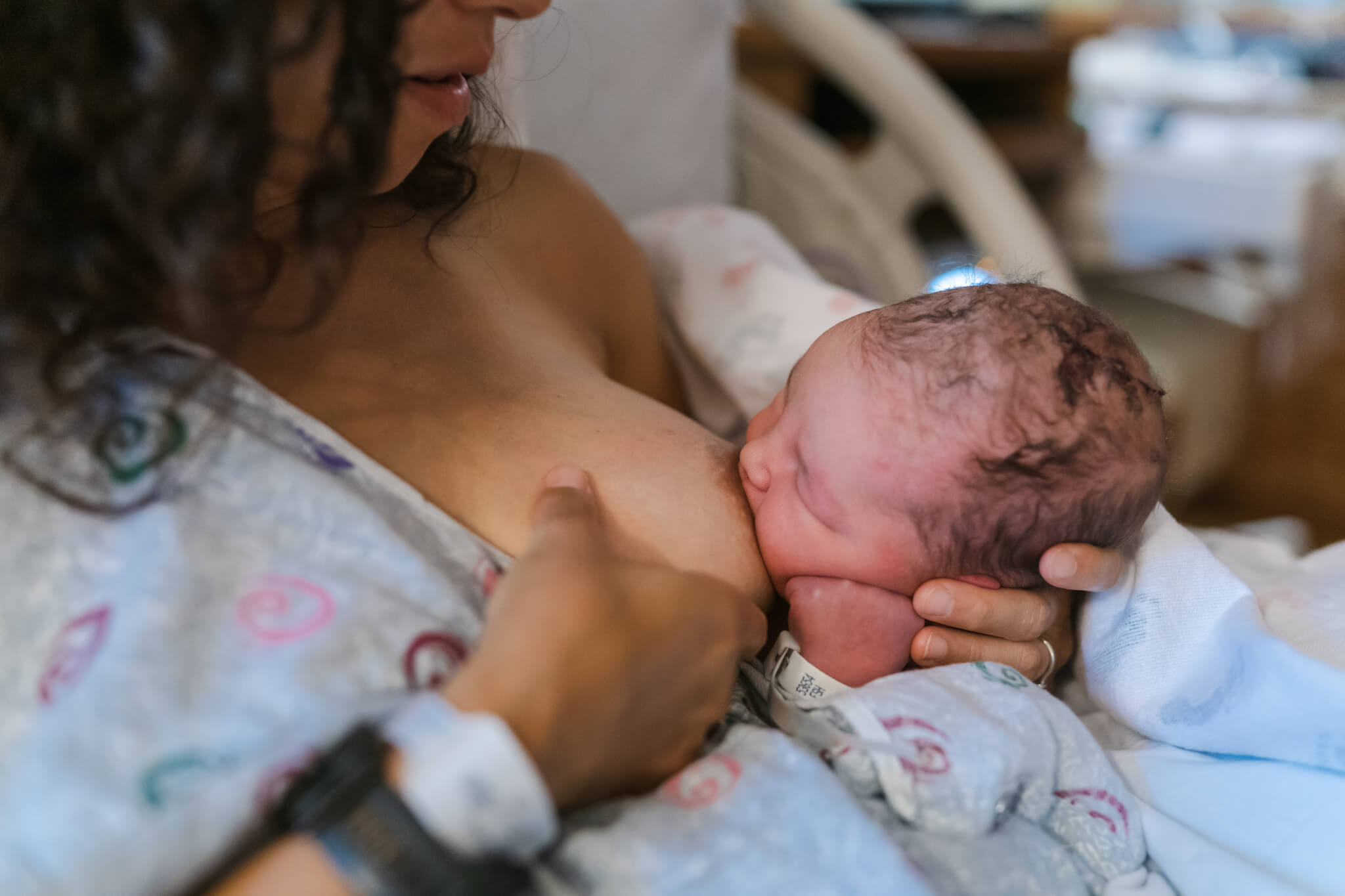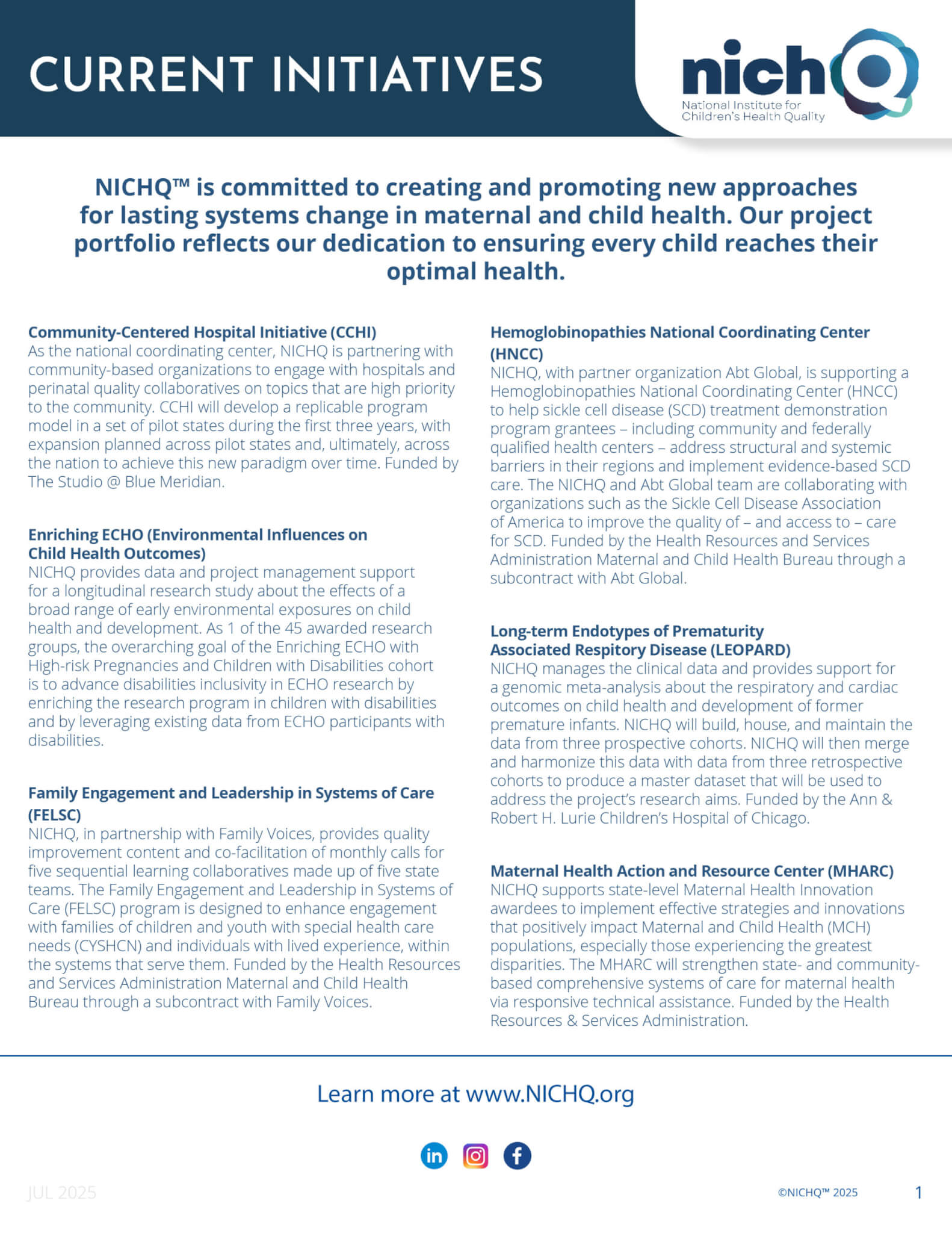Best Fed Beginnings
A first-of-its-kind, nationwide quality improvement initiative to help hospitals improve maternity care and increase the number of “Baby-Friendly”-designated hospitals in the United States.

Who
Participants included 89 hospital teams from around the U.S.
Our Role
Facilitated three concurrent learning collaboratives that provide coaching to 89 hospitals on how to apply the Model for Improvement to maternity care in pursuit of Baby-Friendly designation. We also built Baby-Friendly USA’s and the USBC’s internal quality improvement capacity, raised awareness of the World Health Organization’s Breastfeeding Hospital Initiative (BFHI) and supported teams in establishing improved connection with community based breastfeeding coalitions.
Funder
The project was supported by the Centers for Disease Control and Prevention (CDC) and run in close partnership with Baby-Friendly USA and the United States Breastfeeding Committee (USBC).
Project Impact
External Resources
State Perinatal Quality Collaboratives
List of PQCs funded by the Center for Disease Control and Prevention (CDC)
The Power of PQCs
Video showing the impact that PQCs have on the communities they serve. Produced by the NNPQC.
PQCs in the News
Articles in news outlets covering state PQCs, their activities, and the people that work in the collaboratives.
Patient Safety Bundles
From the Alliance for Innovation on Maternal Health. PSBs are collections of evidence-informed best practices that address clinically specific conditions in pregnant and postpartum people. The NNPQC helps provide TA and support to PQCs in adopting the core AIM Perinatal Mental Health Bundle.
Perinatal Quality Collaboratives
The CDC’s landing page for PQCs, including helpful infographics, videos, and links to help explain what PQCs are, how they work, and stories, learnings, and publications that have come out of the state PQCs.
Meet Our Team
“In our deep organizational work to move along the Equity Systems Continuum from a Savior-Designed System to an Equity-Empowered System, we acknowledge the power of action. The potential is limitless for today’s commitments to improve the systems in which health care and public health professionals work and families receive care.”



